Yes, cats can have ADHD, but it often goes undiagnosed as there is no name for this condition in the species.
ADHD is characterised by rapid mood changes, a short attention span, as well as periods where the cat might sleep and then exhibit impetuous behaviour.
In today’s article, we’re looking at the signs that could point to Attention Deficit Hyperactivity Disorder in cats and how these pets can be helped by owners and vets alike.
Contents
Can cats have ADHD?
A clear answer to this question does not exist.
No one knows whether cats can have the same anxiety and compulsive disorders as humans can.
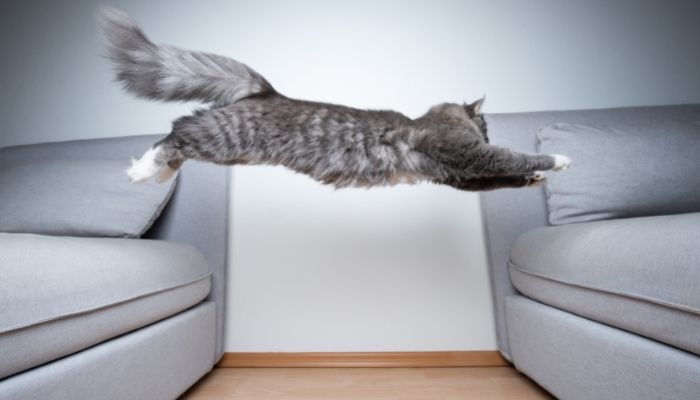
Moreover, the challenge of diagnosing such a condition is that the cat has to be kept under close monitoring for a period of at least several weeks or even months.
There are not enough studies performed on cats that are suspected of having ADHD.
However, most of the symptoms that a cat with ADHD can show are similar to those in people that have the same condition.
Some possible symptoms of ADHD in cats include:
1. Rapid Mood Changes
If your cat has ADHD, she will show some of the clinical signs that the condition causes in humans. One of the most significant ones is rapid mood swings.
In this case, your cat will change her mood all of a sudden and without any warning whatsoever.
You might be comfortably snuggling with your cat and petting her one moment and then she could jump in the air, start playing with the most surprising things in her environment, or she could engage in fight play with you.
Mood swings are seen in cats that do not have this disorder, either, but they tend to happen a lot more rarely.
If your pet has ADHD, this symptom will be easily noticeable almost every day.
2. Kitten-Like Energy Levels
Kittens are known for their high energy levels. They love to play, eat, and sleep, and that’s most of what they do during the first year of their lives.
But if your cat is older than 1 or even 2 and she’s still showing the same kitten-like behaviour and has as much energy as a 3-month-old pet, they could have Attention Deficit Hyperactivity Disorder.
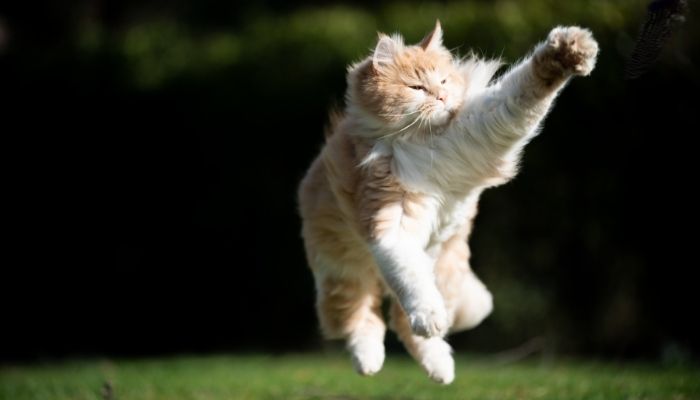
Moreover, if your cat is already in her senior years and still behaves like a kitten, it’s pretty clear that they have at least some form of undiagnosed hyperactivity.
3. Food Eating Disorders
If you have ever been a cat owner before, you probably know that cats like routine.
They thrive when they live in the same space and do not do well when they’re forced to handle changes.
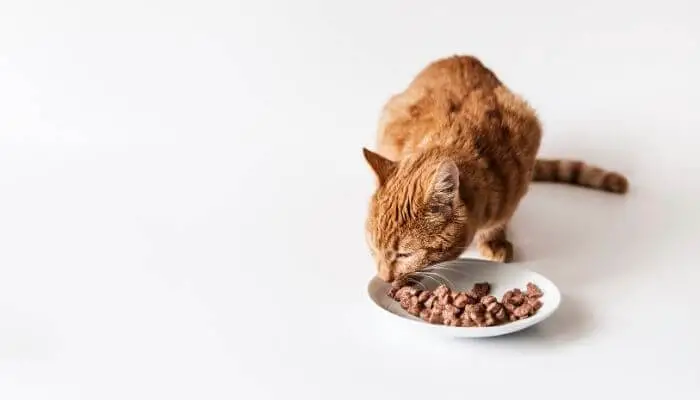
It is quite common for a pet to get used to a feeding schedule, for example.
A cat that doesn’t have ADHD will likely eat at specific times during the day and will change her feeding habits only when she is suffering from disease.
By contrast, a cat with an attention deficit disorder will never have a set feeding schedule.
4. Changes in Their Sleeping Patterns
Sudden bursts of energy can be exhausting for animals and humans alike. As such, a cat that has ADHD will often change their sleeping habits.
While it is true that cats are among the animals that sleep the most over 24 hours (sometimes as long as 16 hours per day), they rarely do it when they have something else they have to tend to.
We mentioned the feeding routine above, so most cats will avoid sleeping in the morning since they know you will feed them once you wake up.
On the other hand, cats with attention and hyperactivity disorders will go to sleep at the unlikeliest of times.
They will also sleep for a very long time after a particularly active day since they have to recover.
5. Extreme Curiosity
Cat are widely known for being very curious.
Any cat will want to investigate her living surroundings as much as possible and also want to mark all the objects in her environment.
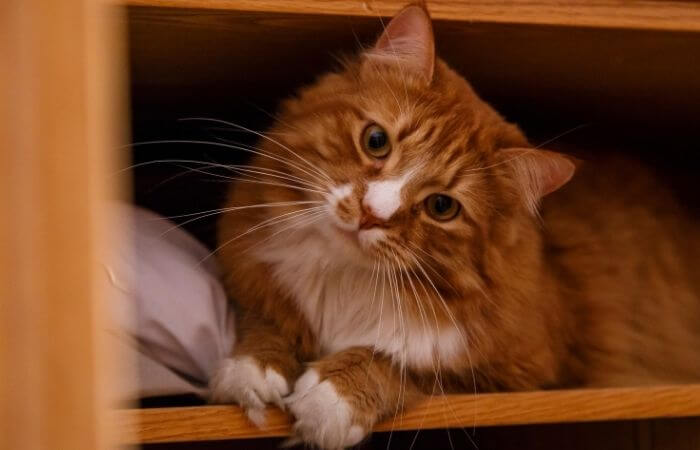
But those that have ADHD will rarely sit still and even though they might already know what’s in a specific cupboard or closet, you might still find them in the most surprising places.
6. Disappearing for a Long Time
If your cat has this disorder and she shares her time between living indoors and outdoors, she might disappear for several days at a time.
It is true that this behaviour shows up in other cat categories, such as males that go out to mate with females.
In these episodes, unfixed pets can be away from home for long periods, sometimes up to two or more weeks.
But if your cat is neutered or spayed and she still keeps spending a huge amount of time outdoors and sometimes even disappears for days on end, it’s something to worry about.
It could be a sign of ADHD along with the other symptoms we’ve showcased here.
7. No Self Awareness
While cats aren’t the best when it comes to responding to commands, learning new tricks, or behaving in the way their owners might want them to, they can still back down.
On the other hand, a cat that has ADHD will almost never change her behaviour even if you try your best to convince her to.
If she sets her mind to it, she’ll do it — no matter how much you try and teach her not to jump on the table, steal your food, or any other mischief.
8. A Short Attention Span
Any animal that has an attention deficit disorder is not going to be able to focus on one thing for a long time.
Not only will they show this possible symptom of ADHD, but they might also hyperfocus on a specific object such as a toy when you play with them.
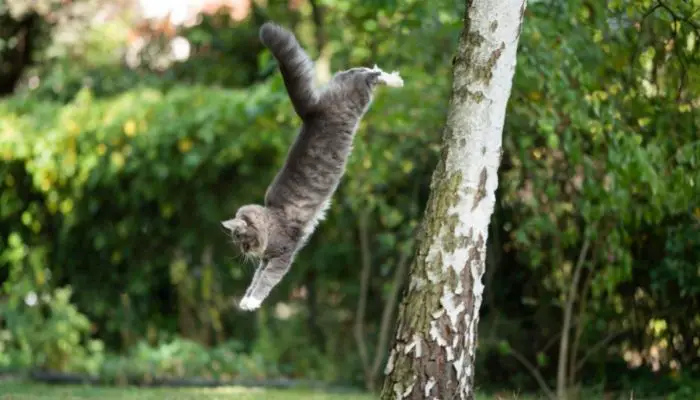
This is necessary as these cats cannot concentrate as well as those that do not have the disorder.
It’s not as effortless for them, so they will work hard to be able to focus on one thing at a time.
Hyperactivity and ADHD in Cats
Given that there isn’t enough evidence to support the theory according to which some cats can have ADHD, it can be quite challenging to tell whether your pet is hyperactive or actually has Attention Deficit Hyperactivity Disorder.
All kittens are hyperactive to a degree, so you can expect your cat to be mischievous and very energetic during the first 12 to 24 months of her life.
However, as the cat grows older, her desire to engage in play and exercise all the time decreases.
By the time she gets to be 7 or older, a cat will not only avoid getting into trouble due to a lack of interest in such activities, but she will also suffer from arthritis and other health problems that can influence her behaviour.
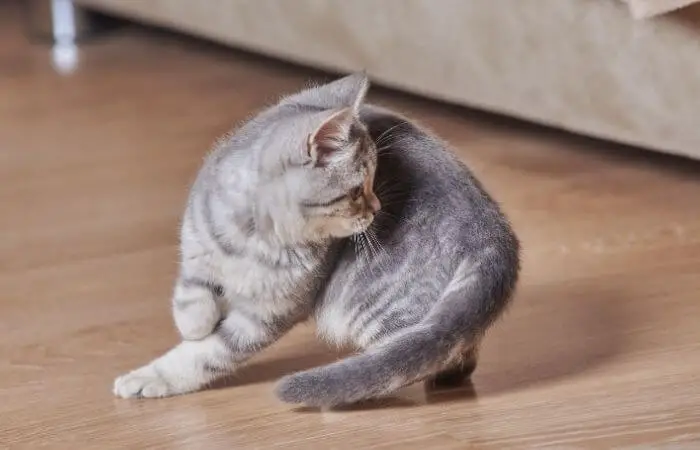
On the other hand, if your cat remains just as hyperactive throughout her life, it’s safe to assume that she might be suffering from a mild or severe form of ADHD.
The lack of behavioural patterns, such as when the animal eats, sleeps, and looks for entertainment opportunities, can be other signs that this could be true in your cat’s case.
Your veterinarian can recommend several ways of managing attention deficit disorder in cats, some of which can involve the use of specific medications.
However, some of these drugs come with serious side effects so their administration has to be chosen depending on your pet’s health status and other individual factors (age and clinical manifestations).
Can cats help with ADHD in humans?
Yes.
Cats and kids with ADHD tend to get along very well, but cats aren’t the only species that can positively influence a person who has this disorder.
However, cats might be the best ones as they can teach kids to follow a specific schedule better than dogs can, for example.
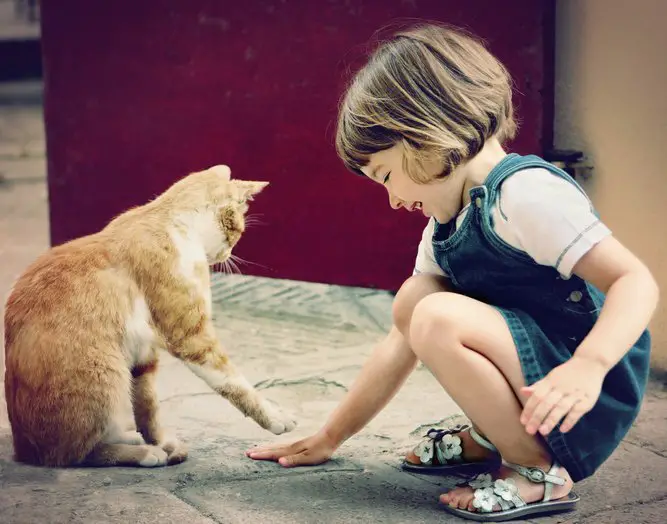
Pets can assist people with mental health disorders in many ways, from helping them boost their self-confidence to increasing their physical activity, being a companion in times of need, and reducing their anxiety levels.
For families that cannot afford to care for a cat due to the expenses involved in pet ownership, even spending time with their friends’ pets can be useful.
Final thoughts
Even though Attention Deficit Hyperactivity Disorder has yet to be extensively studied in animals, there could be several treatment options available for your specific case.
Taking your cat to the animal hospital for a check-up is recommended once or twice a year anyway.
The best piece of advice that we have for you is to keep in touch with your veterinarian and ask them for recommendations.
Also, if you see your cat behaving in a certain way repeatedly and you suspect she has ADHD, shoot a video of the episode with your smartphone.
By using this, your vet is likely to at least suspect a diagnosis easier than they would if you were only to tell them about your cat’s symptoms.
As an Amazon Associate I may earn a small fee from qualifying purchases at no extra cost to you. This helps us run the site, so thanks for your support!

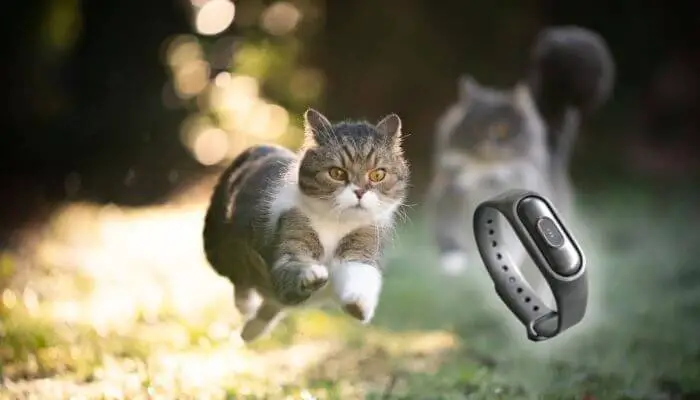
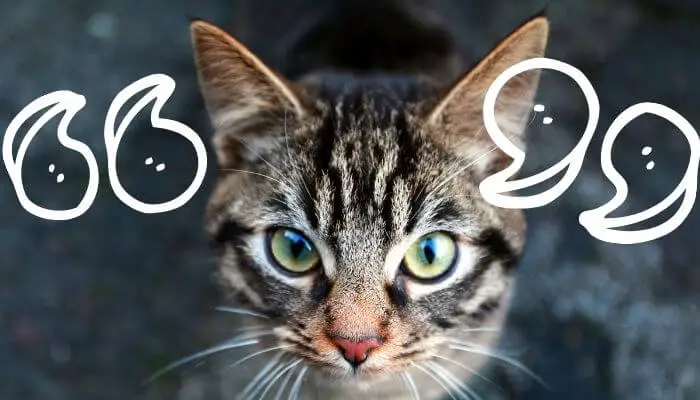
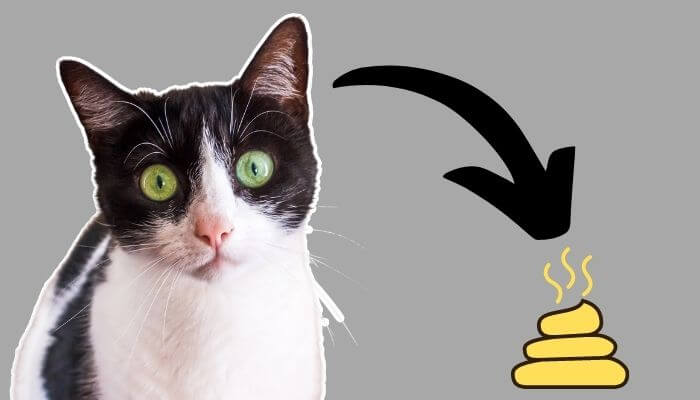
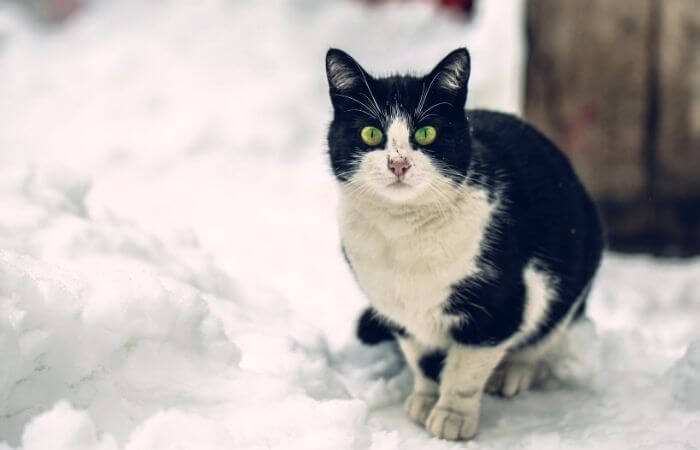
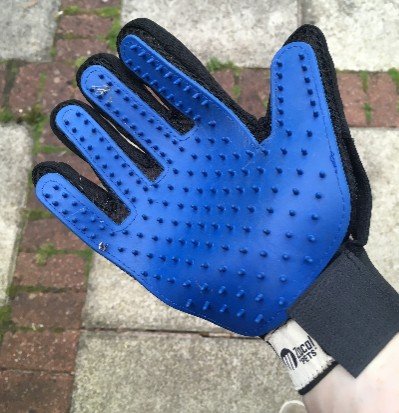

Leave a Comment